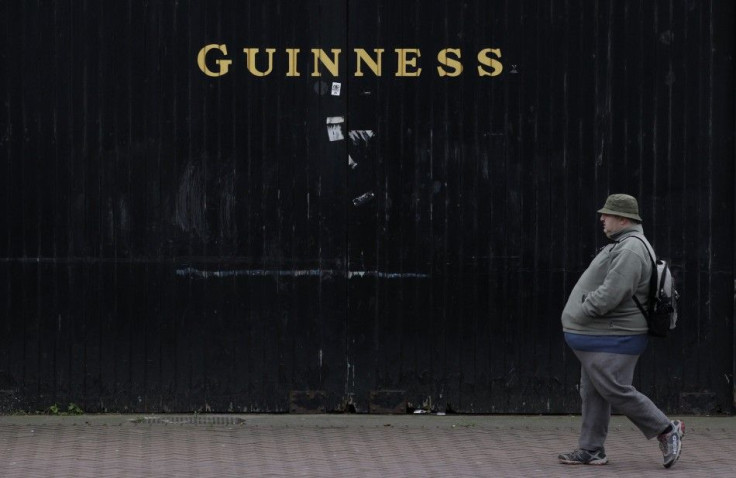Ireland’s Economy Shrank in Third Quarter

Despite billions of euros in aid and draconian spending cuts, the economy of Ireland continues to shrink.
Irish GDP contracted by nearly 2 percent in the third quarter of 2011, according to Ireland’s Central Statistics Office (CSO), in the wake of a 1.4 percent expansion in the prior quarter.
Not all the news is entirely bad – Ireland’s net exports climbed by 21.8 percent on a year-over-basis. But that was not enough to compensate for weakness is other segments of the economy.
“The Irish economy disappointed in the third quarter of the year, with real GDP contracting as net exports fail to drive growth this time,” said Sonia Pangusion, IHS Global Insight’s senior Irish economist.
“Among the GDP components, only real exports expanded, but not enough to support overall growth.“
Pangusion cautioned that “from a debt sustainability point of view, the performance of the Irish economy during the third quarter of 2011 does not bring good news for Ireland. Moreover, looking forward, there is little room for complacency.”
IHS Global forecasts that Ireland’s GDP will grow by only 0.9 percent next year (down significantly from its prior 2.0 percent estimate).
“This has been driven by the deterioration of the global outlook, which threatens to derail Ireland's export-led recovery,” Pangusion said.
“The austerity measures included in the 2012 Budget clearly try to minimize the impact on economic growth and jobs. Nevertheless, it is inevitable that Irish consumers will feel the pain and remain significantly squeezed for some time to come.”
Meanwhile, the International Monetary Fund (IMF) has just approved another 3.9 billion ($5.1 billion) euros of loans for Ireland, after it warned that economic slowdown in Irish trading partners would hurt the country’s exports.
Just last week, the Dublin government unveiled another round of spending cuts – this one amounting to more than 1 billion euros ($1.3-billion), which includes a flurry of tax hikes and an increase in the value-added tax to 23 percent.
Public expenditure minister Brendan Howlin told Dublin’s Parliament: Our country has suffered the greatest economic crisis in living memory leading to a large fall in Exchequer revenues.
He added: Twelve months ago we were Europe's problem. Now problems in the European and global economy threaten our recovery.
Indeed, Pangusion concurred with the minister, noting that the inability of Europe's leaders to solve the Euro zone debt crisis has only aggravated Ireland's problems as it has contributed dramatically to the deterioration of the Euro zone outlook, reinforcing the economic slowdown in Ireland.
“As the debt crisis has deepened by the day, the global economic outlook -- and, in turn, Ireland's economic prospects -- have deteriorated accordingly,” she said.
“Therefore, Ireland's ability to generate the growth rates necessary to guarantee the sustainability of its public debt and then regain sufficient confidence to be able to return to the financial markets for funding will obviously depend on some sort of lasting resolution to the Euro zone debt crisis. Otherwise, the future of Ireland will start to look very gloomy.”
© Copyright IBTimes 2025. All rights reserved.





















